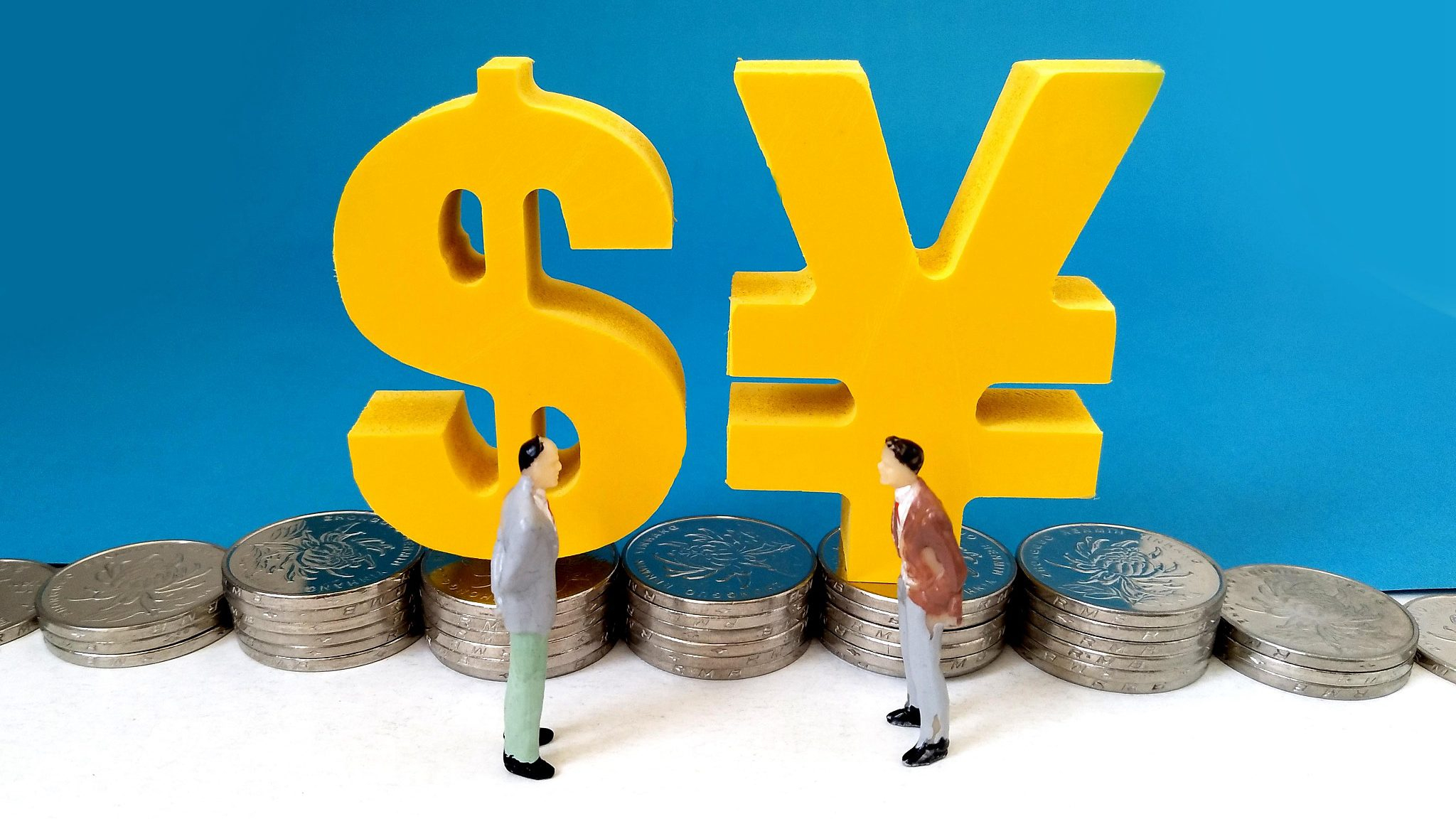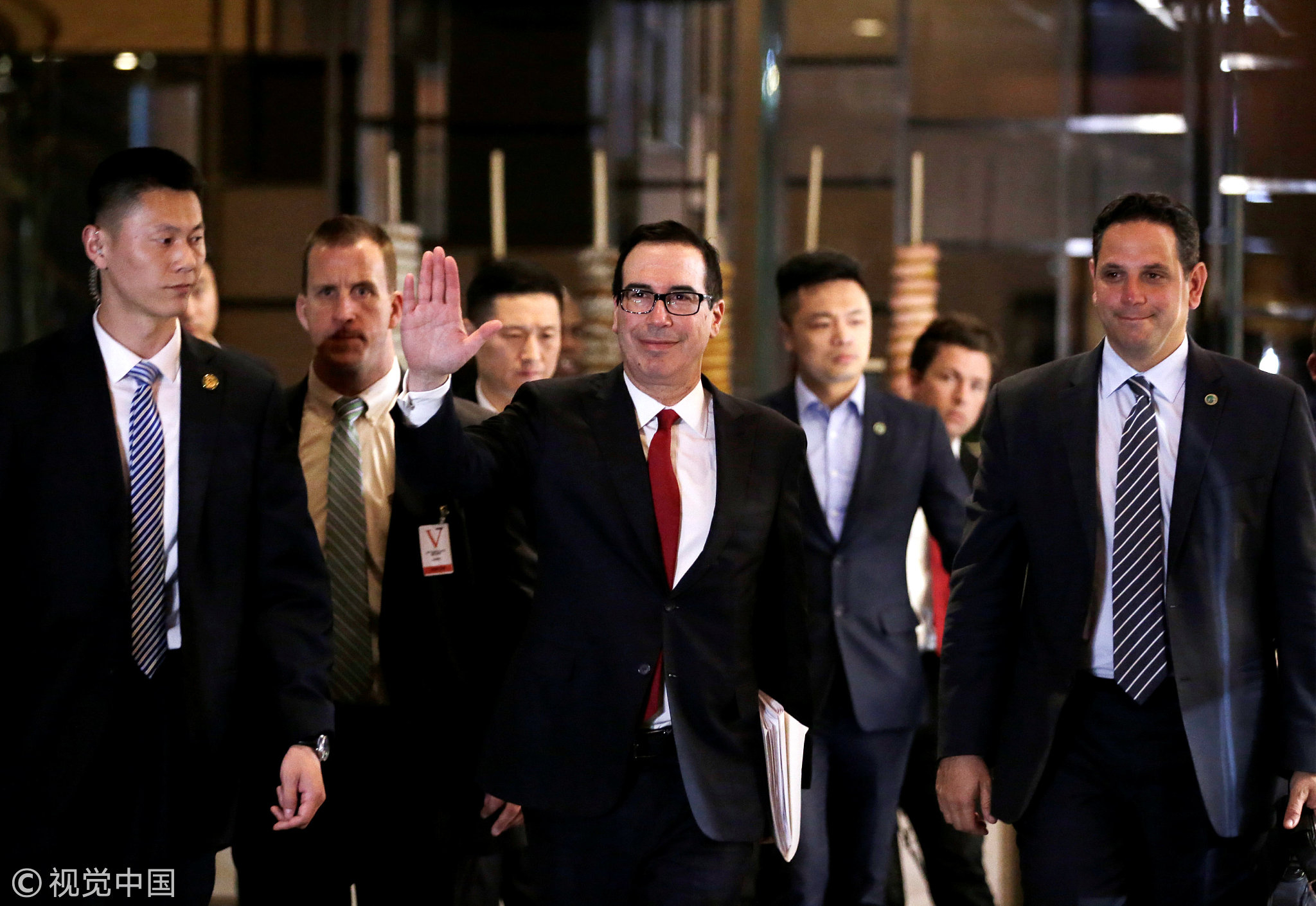
Opinions
15:00, 23-Aug-2018
Opinion: Trade war in the long horizon
Updated
14:48, 26-Aug-2018
James Rae

Editor's note: James Rae is a Fulbright visiting scholar at Beijing Foreign Studies University. The article reflects the author's opinion, and not necessarily the views of CGTN.
Mid-level trade talks are commencing in Washington between Chinese and American delegations. Little progress is expected and both sides must prepare for the new normal of a trade war. Despite expected economic challenges in both countries, partially as a result of the US-initiated trade dispute, little urgency exists to resolve the dispute.
On the American side, most scholars, corporate leaders, and policy analysts believe escalating tariffs and confrontation rhetoric will harm the US economy, bilateral relations with China, and global economic growth. Returning to free trade principles of non-discrimination and engaging in this process through long-negotiated multilateral forums makes clear economic sense. It also makes political sense for President Trump to target China (or Mexico, Europe, Russia, etc.).

US Treasury Secretary Steven Mnuchin, a member of the US trade delegation to China, waves to the media as he returns to a hotel in Beijing, China, May 3, 2018. /VCG Photo
US Treasury Secretary Steven Mnuchin, a member of the US trade delegation to China, waves to the media as he returns to a hotel in Beijing, China, May 3, 2018. /VCG Photo
In imagining an “easy” victory in a trade war, Trump recently said, “I’m like [China], I have a long horizon.”
Well, Trump’s time horizon appears to be shrinking. He has at most six years left as president – odds are for only two years – and with the admission of guilt by his personal lawyer in the brewing domestic political scandal, the threat of impeachment is clear and present. This is all the more reason for him to talk tough on China and project himself as a fighter for the national interest toward all threats, great and small. As a result, the anti-China rhetoric in Washington is growing and expanding.
Thus, can China weather the storm? I think so. It does have a longer time horizon to wait out any economic malaise. Furthermore, the United States has not created a coalition to isolate China and apply concerted pressure – rather, China has gone global and is deeply engaged with fruitful business and investment ventures around the world. Everyone needs China.

Michael Cohen, the former lawyer to US President Donald Trump, exits the Federal Courthouse on August 21, 2018, in New York City. Cohen reached an agreement with prosecutors, pleading guilty to charges involving bank fraud, tax fraud, and campaign finance violations./VCG Photo
Michael Cohen, the former lawyer to US President Donald Trump, exits the Federal Courthouse on August 21, 2018, in New York City. Cohen reached an agreement with prosecutors, pleading guilty to charges involving bank fraud, tax fraud, and campaign finance violations./VCG Photo
The China-based global supply chain in basic manufactured goods is central to world output. China has a comparative advantage in almost all retail sectors owing to modest labor costs, highly developed infrastructure, a diligent and skilled workforce, and overall efficiency of production. China’s middle class has arrived, its purchasing power is enormous, and they are increasingly willing to spend, from local retailers to global luxury brands.
First, foreign producers need the China market. It will be the engine of growth for at least the next two or three decades.
Second, many foreign markets are welcoming Chinese-made goods, and any decrease in the value of the renminbi keeps those products competitive, perhaps even with tariffs applied to the US market.
Third, Chinese consumers can withstand a temporary rise in costs of random products or find substitutes. The Chinese economy is not as dependent on exports as it once was, and consumer spending is ramping up quickly, aided by the enormous opportunities of e-commerce and online retailers.

Products imported from China are displayed for sale at a wholesale shop in Paris, France, August 10, 2018./VCG Photo
Products imported from China are displayed for sale at a wholesale shop in Paris, France, August 10, 2018./VCG Photo
Meanwhile, when inflation starts to creep into the American economy, it will be hard for President Trump to hold the line against Wall Street, broadly speaking, and many in his own administration support free trade, particularly those in the Treasury Department.
Of course, talking tough about China has a strong appeal to Main Street, and thus little is expected of this August round of trade talks, or any other dialogues before the November midterm elections.
After that election, President Trump is likely to be fighting for his political life against his political opposition and will have little time to focus on much of anything. Therefore, the trade hostilities will likely continue on auto-pilot or could further escalate. Trump will not be worrying about the long-term effects of his economic vision, but rather the short-term battles against his legal tormentors, and searching for any way to distract the public.

SITEMAP
Copyright © 2018 CGTN. Beijing ICP prepared NO.16065310-3
Copyright © 2018 CGTN. Beijing ICP prepared NO.16065310-3